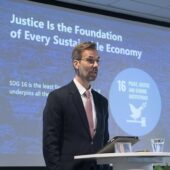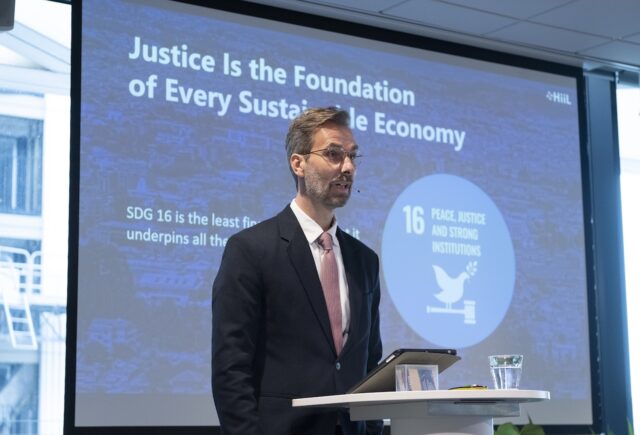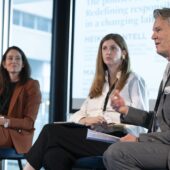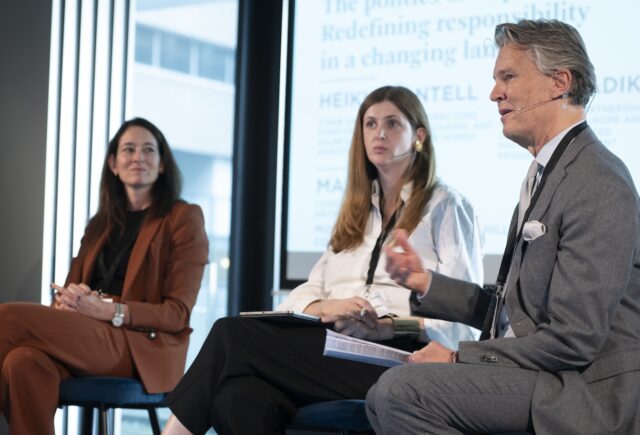Family businesses have a unique role to play in sustainability. Through four case studies, this book looks at how business can deliver on SDG 8 but it poses more questions than it answers, writes Christopher Walker.
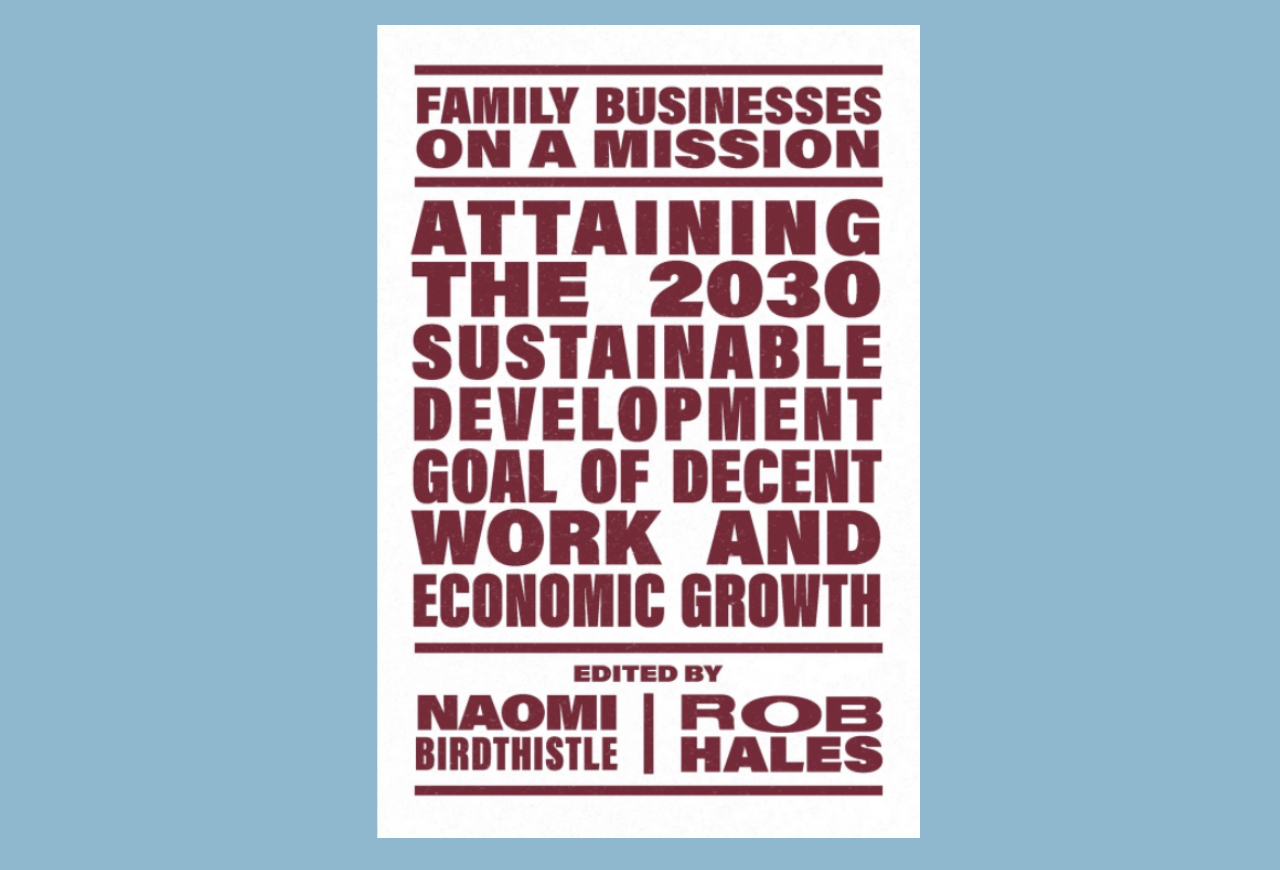
In brief
- The authors argue family businesses are uniquely positioned to deliver the UN SDGs given their special perspective
- In four case studies, we are shown how businesses can deliver on SDG 8 – decent work and economic growth. Two are particularly interesting – Pentland Brands and Outland Denim
- However ultimately this slim volume poses more questions than it answers. More research is needed
- This is one in a series of four books looking at the role of family businesses in contributing to different SDGs
Naomi Birdthistle is an academic who “has entrepreneurship in her blood”. She worked in her own family business for over 20 years, then as a consultant on family businesses before writing the first ever PhD on the subject in Ireland. She has teamed up with Rob Hales, the director of the Griffith Centre for Sustainable Enterprise to edit this very interesting exploration of how they can contribute to the UN Sustainable Development Goals (SDGs).
This book focuses on SDG 8 – decent work and economic growth. Target 8.5 is human-centred and aims to enable all people to achieve full and productive employment and have equal pay for equal work. Target 8.6 aims to reduce youth unemployment and enable education and training. Target 8.7 focuses on fighting child labour, slavery and human trafficking.
Recent events have made Target 8 more of a challenge than ever before. As the editors observe “COVID-19 has led to the loss of 255 million full-time jobs … [and has had] a knock-on effect onto those who are in the minority groups such as youth and women”. UN research found that 8.7 % of youth lost their jobs in 2020 compared with 3.7 % of adults, and 5 % of women lost their jobs compared with 3.9 % of men.
Why family businesses?
“Family-businesses account for more than two-thirds of businesses worldwide and contribute to 70 – 90 % of the world’ s GDP,” but also according to Professor Walter Filho in his introduction they “are uniquely placed to contribute to SDGs. Firstly, because family business models have longer time perspectives… [and] have intergenerational perspectives which is a core principle of sustainability. Secondly, family businesses often focus on aspects of business operation which do not have an immediate return…. Thirdly, family businesses tend to rate the importance of ethics higher than standard businesses.”
This last point is one I would have liked to have been debated more broadly. The Porsche family is mentioned en passant but not the recent book that asserted a very different perspective on their ethical history. Having said that, the four families dealt with here clearly have worthy ethics. Two were of particular interest.
Pentland Brands
Sara Brennan and Alan Cruz contribute an interesting case study of Pentland Brands.
The Rubin family invested early in Reebok and then banked their profit to build a significant portfolio of activewear brands. These include Speedo, Berghaus, Mitre, ellesse, and Red or Dead. Andy Rubin, deputy chair of Pentland Group states that “as a family business we are just the custodians for the next generation”.
The company certainly seems to have devoted considerable time and thought to impact. “The textile manufacturing supply chain is heavily reliant on women, so Pentland Brands believe they can play a role in supporting gender equality.” Factory data including gender data are published on Pentland Brands’ website.
They have a zero tolerance policy for infringements. They “confirm their remediation plan, analyse the root cause and take action to remedy the issue effectively”. If necessary, relationships are suspended or ended. “New factories will not get Corporate Responsibility approval for production until all zero tolerance issues are corrected.”
Outland Denim
James and Erica Bartle went to the cinema in Australia in 2008 and were horrified by the movie Taken exposing human trafficking. The International Labour Organization estimates that 98% of sex trafficking victims are women and girls. After extensive research, including travelling to Asia with anti-trafficking group Destiny, they created Outland Denim (OD), focused on stopping human trafficking of vulnerable women.
Their first factory was established in rural Cambodia in 2008 with just five women who needed a safe space. The business has since skyrocketed, particularly after Meghan Markle, Duchess of Sussex, wore a pair of their jeans on her tour of Australia. Sales enquiries rose 3000%.
Production stopped during COVID, but the company raised over 1.32 million Australian dollars through crowdfunding to expand its workforce in Australia and Cambodia. Interestingly, James believes their biggest opportunity lies in manufacturing garments for other companies. To enable this OD has developed its MAEKA standard which James hopes will “take the guesswork out of supply chains”.
One of many interesting nuggets, and after reading about OD I wanted to go out and buy their product. But overall I fear this slim book raises more questions than it answers. Does the size of a family business matter for doing good? And even for Pentland, the authors admit “it can be a challenge to monitor and track progress and impact”.
